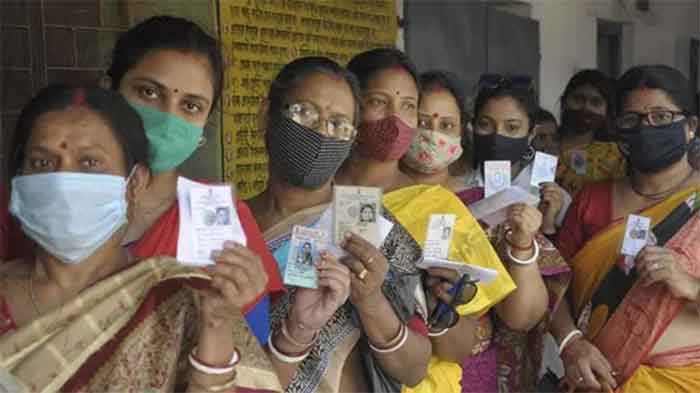
Background
Democracy, a form of people’s rule, requires great responsibility and commitment from the citizen and state. Democracy is an inclusive practice cemented on modern liberal ideals that brings peace & progress in society. The danger it carries equally great hope and aspirations and failing which revert back to conservative false promises. Unfortunately most of democratic political systems in the contemporary world either failed or failing of citizenry expectations, it pushed them to rethink the modern liberal socio-political system and facilitate the germination of illiberal democracy.
Illiberal Democracy and Anti-Modernization
Illiberal democracy refers to a type of political regime that combines elements of democracy with authoritarianism, where the rule of law, civil liberties, and political pluralism are constrained. Anti-modernization, on the other hand, refers to a rejection of modern values, institutions, and practices in favor of traditional or conservative ones. In the contemporary times we are witnessing a sudden rise of illiberal democracy and there are huge anti-modernization waves across the globe. Illiberal Democracy and anti-modernization waves continue to be a significant concern in contemporary society, not just in South Asia but also in other parts of the world. Illiberal Democracy has been on the rise globally, with populist leaders and political parties gaining power in many countries. These leaders often exhibit authoritarian tendencies, such as restricting freedom of expression, suppressing dissent, and weakening democratic institutions.
Anti-modernization waves are gaining much deeper sense in contemporary society, it generates huge resentment and public glare, fermenting indigenous resistance culture that transforming into forms of movement. These movements reject Western modernization and seek to uphold traditional values and beliefs. They often promote a narrow and exclusionary vision of society, which discriminates against minority groups. The relationship between Illiberal Democracy and anti-modernization waves in contemporary society is complex. Illiberal Democracy provides the political space for anti-modernization movements to flourish, while anti-modernization movements provide the ideological justification for Illiberal Democracy. This symbiotic relationship can have serious implications for democracy, human rights, and social justice.
Moreover, the rise of Illiberal Democracy and anti-modernization waves in contemporary society can be attributed to various factors, such as globalization, economic inequality, and cultural identity. Many people feel left behind by globalization and the pace of change, leading them to embrace traditional values and beliefs. Economic inequality has also contributed to the rise of populist leaders, who promise to address the concerns of the working class. Cultural identity has also played a significant role, with many people feeling threatened by the perceived erosion of their national and cultural identity.
Contemporary Illiberal World
In the contemporary world, there are several countries containing attributes of illiberal democracy and have anti-modernization waves, here are few examples; Russia– since the election of Vladimir Putin in 2000, Russia has increasingly moved towards illiberal democracy. Putin has consolidated power, suppressed opposition, restricted freedom of speech, and cracked down on civil society. Additionally, there has been a resurgence of traditional values, such as the Orthodox Church, and a rejection of Western liberalism. Turkey- Under the leadership of Recep Tayyip Erdogan, Turkey has seen a shift towards illiberal democracy since 2013. Erdogan has been accused of suppressing dissent, eroding the independence of the judiciary, and cracking down on the media. Furthermore, there has been a resurgence of conservative Islamic values and a rejection of secularism. Hungary– Since coming to power in 2010, Viktor Orban has moved Hungary towards illiberal democracy. Orban has restricted the independence of the media and the judiciary, cracked down on civil society, and limited political pluralism. Additionally, there has been a rejection of liberal values, such as LGBT rights and multiculturalism, in favor of conservative nationalism. United States– The election of Donald Trump in 2016 and the rise of the populist right in the United States have been seen by some as a manifestation of anti-modernization. Trump’s rhetoric often appealed to traditional values, such as nationalism and protectionism, and rejected liberal values, such as multiculturalism and free trade. There also noted a rejection of expertise and scientific knowledge.
Illiberal Democracy in South Asia
Illiberal Democracy and anti-modernization waves have been a significant concern in South Asia in recent years. Illiberal Democracy is a political system that combines democratic practices with authoritarian tendencies, such as the restriction of civil liberties and human rights. On the other hand, anti-modernization waves refer to the social movements that reject Western modernization and seek to uphold traditional values and beliefs. This paper aims to examine the relationship between Illiberal Democracy and anti-modernization waves in South Asia. In South Asia, Illiberal Democracy has been on the rise in recent years. In countries such as India, Pakistan, Bangladesh, and Sri Lanka, democratic institutions and practices coexist with authoritarian tendencies. For example, in India, the ruling Bharatiya Janata Party (BJP) has been accused of suppressing dissent and restricting freedom of expression. The Indian government has also been criticized for its handling of the farmer protests and its treatment of minorities, particularly Muslims.
Similarly, in Pakistan, the military has a significant influence on politics, and democratic institutions have been weakened. The country has been ruled by military dictators for a significant portion of its history, not a single civilian elected government completed the full terms. Islamic fundamentalism, cultural conservatism and anti-minority are the major force in society. In Bangladesh, the ruling Awami League has been accused of cracking down on opposition and stifling dissent. In Sri Lanka, the government has been criticized for its handling of the COVID-19 pandemic and its treatment of minority groups, particularly Tamils.
Anti-modernization Waves in South Asia
Anti-modernization waves in South Asia are social movements that reject Western modernization and seek to uphold traditional values and beliefs. These movements have been on the rise in recent years, particularly in India and Pakistan. In India, the Hindu nationalist movement, led by the BJP, seeks to promote Hindu culture and values and reject Western secularism. The movement has been accused of promoting a narrow and exclusionary vision of Indian society, which discriminates against minority groups, particularly Muslims. Similarly, in Pakistan, the Islamic fundamentalist movement seeks to promote Islamic values and reject Western modernization. The movement has been accused of promoting a narrow and exclusionary vision of Pakistani society, which discriminates against minority groups, particularly Hindus and Christians. There is a close relationship between Illiberal Democracy and anti-modernization waves in South Asia. Illiberal Democracy provides the political space for anti-modernization movements to flourish. In countries such as India, Pakistan, Bangladesh and Sri-Lanka Illiberal Democracy has given rise to political parties and leaders who seek to promote traditional values and reject Western modernization.
It is important to note that these anti-modernization movements are not representative of the entire population of these countries. Many people in these countries embrace modernization and its associated values, including secularism, gender equality, and cultural diversity. Moreover, anti-modernization movements provide the ideological justification for Illiberal Democracy. In countries such as India and Pakistan, Illiberal Democracy is often justified by the need to protect traditional values and beliefs from the perceived threat of Western modernization. The anti-modernization movements provide the ideological framework for this justification. Furthermore, Illiberal Democracy and anti-modernization waves reinforce each other. Illiberal Democracy provides the political power necessary for anti-modernization movements to promote their agenda, while anti-modernization movements provide the ideological justification for Illiberal Democracy.
In Nutshell, Illiberal Democracy and anti-modernization waves are significant concerns for the world. Illiberal Democracy provides the political space for anti-modernization movements to flourish, while anti-modernization movements provide the ideological justification for Illiberal Democracy. The close relationship between Illiberal Democracy and anti-modernization waves has significant implications for democracy and human rights around the globe. Therefore, it is essential to address these concerns to promote democracy, human rights, and social justice globally and particularly in South-Asia. This requires a concerted effort by governments, civil society, and individuals to uphold the values of freedom, equality, and justice that are ingrained in democracy.
References;
Levitsky, S., & Ziblatt, D. (2018). How democracies die. Crown.
Mounk, Y. (2018). The people vs. democracy: Why our freedom is in danger and how to save it. Harvard University Press.
Diamond, L. (2015). Facing up to the democratic recession. Journal of Democracy, 26(1), 141-155.
Snyder, T. (2018). The road to unfreedom: Russia, Europe, America. Tim Duggan Books.
Haider-Markel, D. P., & Joslyn, M. R. (Eds.). (2018). Populism and democratic decline: Comparing Austria, Germany, and the United States. Routledge.
Chhibber, P., & Verma, A. (2018). The rise of illiberal democracy in India. Journal of Democracy, 29(2), 18-32.
Judis, J. B. (2016). The populist explosion: How the great recession transformed American and European politics. Columbia Global Reports.
Greskovits, B. (2019). The politics of authoritarian rule. Cambridge University Press.
Chakrabarty, D. (2000). Provincializing Europe: Postcolonial Thought and Historical Difference. Princeton University Press.
Ganguly, S. (2019). Illiberal democracy in India. Journal of Democracy, 30(2), 51-62.
Hussain, M. (2018). Islam in the Subcontinent. In A. Malik (Ed.), The Oxford Handbook of Indian Foreign Policy (pp. 119-131). Oxford University Press.
Kamran, T. (2017). Anti-modernization in Pakistan: The Role of Islamization. Journal of South Asian Studies, 5(2), 49-60.
Mukherjee, A. (2018). Hindu Nationalism and Illiberal Democracy in India. The Review of Politics, 80(4), 553-577.
Narayan, S. (2019). Democracy and Illiberalism in South Asia. Asian Survey, 59(6), 974-991.
Rajagopal, A. (2003). Politics after Television: Religious Nationalism and the Reshaping of the Indian Public. Cambridge University Press.
Sardesai, R. (2018). The Indian Illiberal Turn: Understanding the BJP’s Rise to Power. Journal of Democracy, 29(4), 66-79.
Dr Md Afroz, teaches Political science & Public Administration @MANUU. He has obtained M,Phil, PhD from Jamia Millia Islamia. His interest lies in; federalism, ethnic conflict, Nation-building, democratic decentralization and governance.
For more info.
Follow @khwajaAfrozSidd















































